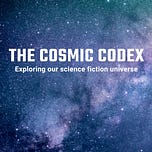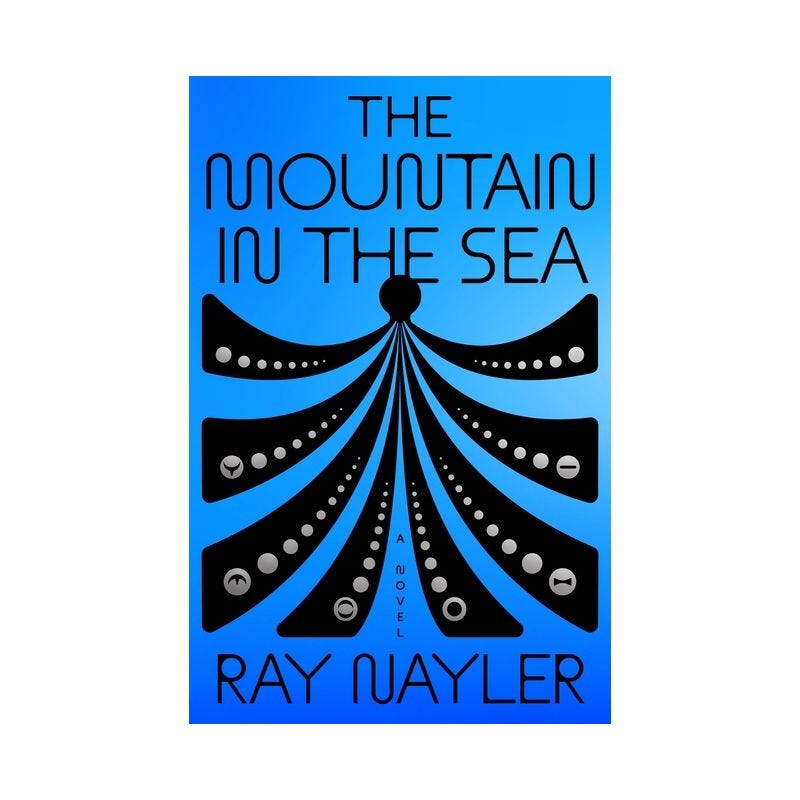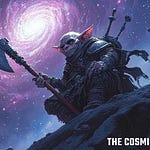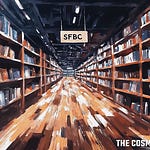My novelette, An Illicit Mercy, is part of a new promotion in December, Free Science Fiction & Fantasy Reads.
Check out nearly 200 novels, short stories, and excerpts, available for free.
My latest short story An Unexpected Grace appears in Boundary Shock Quarterly 24: Science Fiction Holidays.
Still coming to terms with her decisions during a recent assignment, Corporal Siwela takes a leave-of-absence. Perhaps a holiday visit to her home community will help get her head straight. But the trip doesn’t go as planned. Marooned and wounded in the Martian outback, running out of air, Siwela won’t survive without aid. This wasn’t how she planned to spend Christmas.
Club Codex is reading and discussing the Locus Award-winning novel “The Mountain in the Sea” by Ray Nayler through December 16. Please join us!
One of my closest friends in junior high enjoyed a certain author’s military sf. He often shared, with great enthusiasm, about the stories he was reading.
I didn’t then read them myself. Raised in the pacifistic ethos of a Mennonite church, my friend’s description of the violent imagery in these stories made me uncomfortable. I even discussed my contrary opinion in a junior high English paper, describing them as “glorified war stories (or gore stories.)"
That author was David Drake.
Drake was born in Dubuque, Iowa, on September 24, 1945, just over three weeks after V-J Day. He graduated from the University of Iowa and entered law school at Duke. Then the U.S. Army drafted him to serve in the Vietnam War.
Assigned to the 11th Armored Cavalry Regiment, known as “the Blackhorse”, Drake became an enlisted interrogator. His tank unit operated in Vietnam and Cambodia for two years. When he came home, he found he needed to process his experiences in the war. Writing science fiction became his tool for this:
“…the stories were more important to me as self-therapy than they were as the start of a career. They gave me a chance to write about what I’d seen and heard; about the men I’d served with and person I’d become in that time. Being able to get that out on paper helped me keep it between the ditches and (from what they’ve told me) helped other veterans by showing them that they weren’t alone.”
Drake’s most famous writing appears in the “Hammer’s Slammers” series of short stories and novels. These tell the tales of a “mercenary tank regiment” fighting for different employers on various planets.
Many years after junior high, I reconnected with the friend who first tried to interest me in Drake’s stories. By this time, he’d retired from his own career in the Army, including combat in Operation Desert Storm and service as a tank commander in Bosnia. Looking, as Drake did, to process his experiences, he too began writing military sf. It’s quite good, and I hope he will someday publish it.
In the course of our conversations, my friend again suggested I read Drake—the original Hammer’s Slammers collection in particular. I finally did.
At 50+ I’m able to appreciate what I couldn’t understand at 13. Drake tries to explain, without apology or excuse, the actions men and women take in war. It isn’t pretty because war isn’t pretty. But it’s real. Turning a blind eye is dishonest about who we are as a species.
Hammers Slammers contains plenty of uncomfortable combat scenes. Many of these portray the deaths of those fighting on either side—or of civilians. But the scene that gets me the most comes at the end of Drake’s novel The Butcher’s Bill.
The residents of the planet Thrush have hired the Slammers to defeat a rival mercenary regiment preventing access to Starhome. This is a 700,000-year-old alien city/shrine built of crystal, which holds the key to perfect harmony between individuals and species. In the words of one of the Slammers’ employers, “Someday men will be able to walk through Starhome and understand.” She wants the Slammers' help to ensure universal access to this temple of empathy.
What happens to Starhome is one of the saddest depictions of warfare I’ve read.
On his website, Drake says of Hammer’s Slammers:
“At one point I hoped the stories would help civilians understand also. I don’t think that can happen. It’s nobody’s fault, it’s just a matter of people not having the background to hear what the words mean to people who’ve been there.”
To a great extent, I'm sure, this is true. But Drake’s writing has helped me glimpse war from the perspective of those “who’ve been there.” And for that, I’m grateful.
A British “soldier’s folklore song” tells us:
Old soldiers never die,
Never die, never die,
Old soldiers never die,
They simply fade away.
Something like this happened to Drake. Two years ago, in his final newsletter, he let fans know of his decision to retire because of health problems. He died this past Sunday.
I know of no more appropriate way to end this memorial than by following the lead of Drake’s obituary and quoting the end of his article “Vietnam”:
“Nobody who missed the Vietnam War should regret the fact. It was a waste of blood and time and treasure. It did no good of which I’m aware, and did a great deal of evil of which I’m far too aware. But having said that . . .
I rode with the Blackhorse.”
Those who wish to do so may donate in David Drake’s memory to The Blackhorse Association Scholarship Fund “…to help educate the children of Blackhorse Troopers killed in action or incapacitated by wounds…”
















